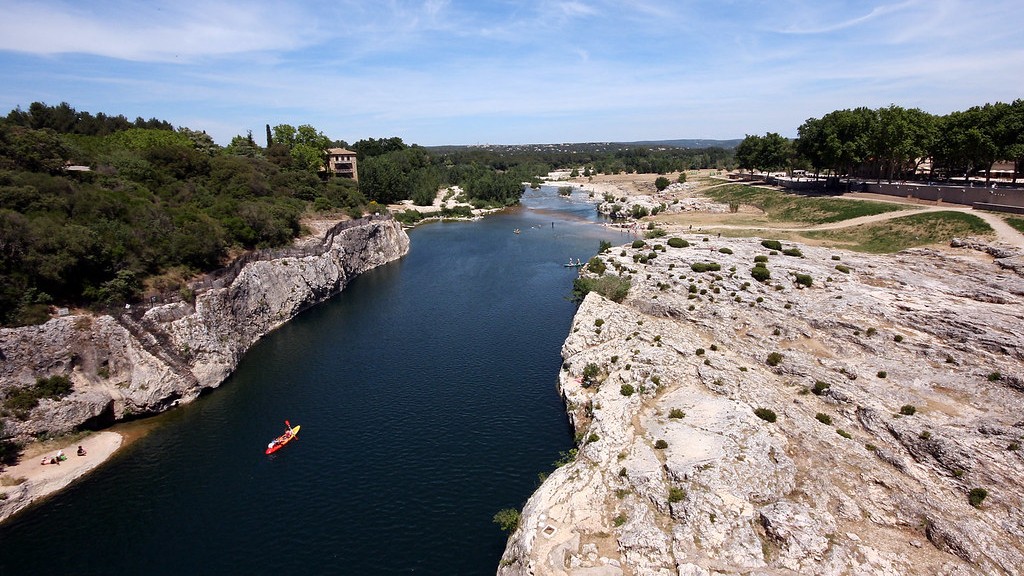The Mississippi River is one of the longest rivers in the world and its level fluctuates over time. In the summer months, the river is known for overflowing its banks, but with the recent drought, the river has shrunk to dangerously low levels.
In recent weeks, the upper Mississippi River, which spans from its source at Lake Itasca in Minnesota to Cairo, Illinois, has seen the lowest water levels in 75 years. Water experts are concerned about the long-term effects on the river basin, as the flow rate and sediment carrying capabilities are becoming compromised.
The amount of water in the river varies with fluctuations in Precipitation, temperature, and runoff from small tributaries. Rainfall is one of the primary factors that affects the water level, and since 2020 has had its fair share of extreme weather, the River has seen many ups and downs.
The drought has highlighted the fragility of water systems in the U.S. and the urgent need to ensure the river’s sustainability. River activists are pushing for ecological measures to be taken in order to protect and conserve the River, as well as its tributaries and surrounding ecosystems.
The U.S. Army Corps of Engineers has been monitoring the river, implementing strategies to cope with the reduced water flow. These strategies include implementing water conservation measures and providing structural solutions to divert water from other sources such as the Missouri River.
The effects of the drought have been felt beyond the river alone. Many businesses along the river banks that rely on barge travel are suffering from the low water levels, and farmers in the region have seen a sharp decrease in their crop yields.
The Mississippi River is a vital source of transportation and a vital source of life. It is vital that measures be taken to restore the River to its natural state and to protect it from further harm.
Preventive Measures
The Mississippi River Commission is putting pressure on people in the states along the River to take precautionary steps. They are urging individuals to conserve water and participate in water-saving activities such as rain barrels, reducing outdoor water usage and rain gardens.
The commission is also working with state and local governments to come up with short and long term plans to reduce the negative impacts of the drought. These include purchasing extra water supplies, pressuring industry to reduce water usage and calling on individuals to conserve water.
The commission is also proposing the use of recycled wastewater for irrigation and other non-potable purposes in areas affected by the drought. This would help to reduce water consumption from the river and help to replenish the water supply.
The commission is also proposing the implementation of stricter groundwater regulations to protect the water table from becoming exhausted. Groundwater is a critical source of water for agricultural producers, and the commission is hoping to protect this resource for future generations.
In addition to the proposed measures, the commission is looking for ways to ensure equitable access to water resources in the region. This would be done to ensure that everyone in the area has access to the same amount of water resources, regardless of race or socio-economic background.
Environmental Impacts
The effect of the drought on the environment has been severe. Widespread areas of land have been dried up, leading to desertification in some areas. This has resulted in a dramatic decrease in wildlife in the area, as well as a decrease in vegetation and a heightened risk of wildfires.
The drought has also caused an increase in water contamination, as dry riverbeds are more likely to be subject to agricultural runoff. Similarly, the decreasing water levels have caused an increase in algae and bacteria in the river, leading to health problems for local people who rely on the river as a source of drinking water.
The decreased sediment holding capacities of the Mississippi River has caused a decrease in fish populations in the area, leading to decreased fishing revenues for the region. This is an especially big problem for small fishermen who rely on a good catch to survive.
The lack of water has also caused an increased risk for flooding. This is because the decreased water levels reduce the flow of the river and make it more susceptible to flash floods. As a result, communities in the area are beginning to look for ways to better prepare for flooding events.
The drought also has a damaging effect on the tourism industry of the region, as water activities such as canoeing and kayaking are becoming increasingly difficult with lower water levels. As a result, tourism revenues are falling, leading to an economic downturn in the region.
Legislation
The current drought has led to a renewed push for legislation that would recognize the importance of water as a national resource and seek to protect it. In recent weeks, the US Congress has been considering measures to ensure the sustainability of water resources in the region. These plans include investing in infrastructure to manage water usage and investing in new technologies to preserve water.
The proposed legislation is also looking to address the issue of water rights. This would involve ensuring that communities have equitable access to water resources, regardless of their socio-economic background. This would also involve putting measures in place to prevent water bottling companies from taking excessive amounts of water without compensating local residents.
In addition, the legislation is also looking to strengthen oversight of the region’s rivers. This would involve monitoring water levels to prevent over-extraction of water resources and to ensure that river ecosystems remain healthy.
The current drought has highlighted the urgent need for the protection of the Mississippi River and the need for better management of water resources. The proposed legislation is a step in the right direction and will help to ensure the sustainability of the Mississippi River in the long-term.
Economic Implications
The drought has had a significant economic impact in the region. Agriculture is the primary industry in the area and the decreased water supply has led to an increase in the cost of production. This has led to an increase in prices for food items, which have been hitting people in the region hard.
The drought has also had an adverse effect on those who rely on barge traffic to transport goods. The decreased water levels have caused navigation problems and have led to an increase in the cost of shipping goods. This has resulted in a decrease in profits for many businesses in the region.
The economic effects of the drought also extend to local communities, as decreased water levels have led to job losses in the fishing, tourism and agricultural industries. Similarly, with the increased prices for food items, people in the region are finding it harder to make ends meet.
The economic effects of the drought are far reaching and are having a negative effect on communities throughout the Mississippi River Basin. It is important that measures be taken to ensure the sustainability of the river so that local communities can continue to benefit from its resources.
Conclusion
The recent drought affecting the Mississippi River Basin has highlighted the importance of water as a national resource. The drought has had devastating impacts on the environment and on local economies, and it is important that measures be taken to ensure the sustainability of the River and to protect it from further harm.
The US government and local authorities must work together to protect the river and to ensure equitable access to water resources. In addition, individuals must take precautionary steps to conserve water and participate in water-saving activities.
The Mississippi River is a vital source of life and it is important that we all take steps to ensure its sustainability for future generations.





